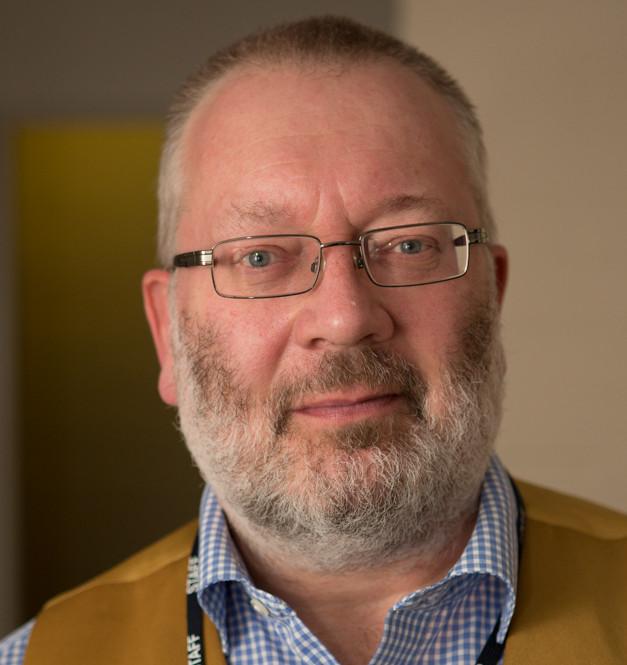Darfur: Different Ways to Save It
A couple of days ago I received a mass email from the Save Darfur Coalition, encouraging me to “turn words into action.” It asked me to write to President Obama urging him to roll out his blueprint for peace in Darfur, “NOW!” As any reader of this blog will know, I believe strongly that this is not the right approach. Darfur will be “saved” by Sudanese, or not at all. Unless the plan has the support of the key stakeholders it will be dead from the outset (initiative number 231). It’s time to do the job properly. And from what I have seen, the Special Envoy for Sudan, General Scott Gration, understands this.
Fortunately, the SDC format gave me the opportunity to edit the SDC’s draft letter. So I composed my own version, under the title “Have the Courage to Stick with S.E. Gration and His Approach.” I wrote:
“I am writing to you from Sudan, where I have spent most of the last two months consulting with a wide range of people in Darfur and other Sudanese stakeholders.
“I am encouraged by the approach that your Administration is taking and by the commitment and skill of your Special Envoy, Gen. Scott Gration. As you know, only the Sudanese people can build a durable peace. The best role of the U.S. is to support domestic and regional efforts for peace in Darfur, and more widely a sustainable settlement to the enduring problems of Sudan. It takes true political will and moral courage to acknowledge this reality, and to avoid the temptation to design a blueprint and demand that the Sudanese conform to it.
“Mr. President, I know you are committed to ending the atrocities in Sudan. I am encouraged by your actions to date which display that rare and difficult political trait, namely the capacity to encourage people to take their destiny into their own hands. I trust you will personally sustain this commitment despite the criticism you will surely come under.”
I encourage others to make use of this opportunity provided by SDC.
The SDC website also includes a button marked “Donate.” Yesterday I was in Ain Siro, a village where the main and overwhelming demand of the residents was for material assistance for their school, clinic, water, etc. This was a rebel-held area of Darfur, where aid doesn’t reach and Khartoum’s writ and restrictions do not run. No-one is assisting the schoolchildren in the picture, seen here singing to welcome President Thabo Mbeki, President Abdusalam Abubaker and Justice Florence Mumba.

I asked Jerry Fowler of Save Darfur about how much of their assistance reaches Darfur. The answer was straightforward:
“We are an advocacy organization, not a relief organization. We spend our money here and abroad on advocacy efforts and try to be clear about that. The only very minor exception is a program for high school students called ‘dollars for Darfur,’ that was started by high school students and has been administered by us for the past couple of years, where half the net proceeds go to humanitarian organizations for relief work, and half comes to us for advocacy.”
That is fair enough, though many advocacy organizations like Amnesty International also provide material assistance to survivors of torture and other needy individuals. But the wording of Save Darfur’s draft letter does imply a link between humanitarian needs and the organization’s activities:
“Every day, millions struggle to get by in makeshift refugee camps, and the coming rainy season will present even more hardships. Sudanese President Bashir’s expulsion of 13 humanitarian aid groups means the people in these camps have even more limited access to vital services as the rainy season rolls in.”
For those of you interested in donating in a way that would provide tangible support to Darfurians in non-government held areas, I suggest the Darfur Diaries project. It assists schools in Shigeg Karo, Anka and Muzbat–three villages in rebel-held north Darfur–and will support more if it gets the funds.







Actually, I believe the Dollars for Darfur program, which just completed its ’08-’09 contest period, is being handed off to STAND in the upcoming year. So, unless I’m mistaken, it will actually no longer be a SDC campaign and so describing it as an ongoing commitment is a bit disingenuous. See my critique of Dollars for Darfur here:
http://savedarfuraccountabilityproject.wordpress.com/2009/06/14/the-childrens-crusade/
Dear De Waal,
No one will disagree with you that any plan intended for saving Darfur must get the support of all the stakeholders. Though many of those stakeholders are competing groups in Sudan, to some degree, they also include the US in particular and the international community in general. Each and every one of those stakeholders must have a plan of action or blueprint for saving Darfur. It is in this context that the Save Darfur Coalition is requesting the US (where the organization has the leverage) so that the US comes with its plan in saving Darfur. This does not mean that the US plan must be imposed from outside into Darfur. The plan must meet the demands of Sudanese people.
Now the debate should rather center on what plans are put out there by those stakeholders in order to save Darfur. In your writing, you inadvertently alluded in to such plan by the US with respect to Gen. Scott Gration rapprochement policy toward Khartoum. Of course, any policy that appeases NCP is not going to get the support of all the stakeholders, therefore, “it will be dead from the outset†as you rightly argue.
Base on your reporting from the AU consultative process, there are general consensus among Sudanese competing parties around comprehensive political solution that takes into account “peace, reconciliation and healing, justice and accountability.†The most interesting thing is: how all those can be formulated into a comprehensive political settlement? For example, you reported that the NCP delegation during the consultation agreed on the issue of “accountability and justice,†but how comes to this day no one is held accountable for the crimes committed in Darfur?
As to the Save Darfur Coalition activities, it should not even be a point of argument or disagreement. Save Darfur Coalition is distinctively embarking on advocacy work. To criticize them for not providing relief work to the suffering Darfuri in camps is like criticizing high schools for not incorporating in its program boot-camp-training as a measure for discipline all those who goes through high school. The paragraph from Save Darfur Coalition literature that you quoted is out of place, because it does not in any way implies that the organization is involved in relief activities. I am not here to defend the organization, but the work and activity of the organization as an advocacy group is clear. For example, in the paragraph you quoted, the purpose is to inform about the dire situation and urge for more action in that respect. In the course of this advocacy work, there are many in the US from celebrities to middle school kids, who became compelled and took it upon themselves to build schools, provide supplies, and raise funds for similar purposes. Otherwise, without such advocacy, these would have been impossible, because the American public would have remained aloof and disengaged for all these time.
What you (De Waal) are doing by trying to explain the situation on the ground and urging for donation for organization of your choice is no different than what the organizations like Save Darfur Coalition is doing. I have heard of Sister Schools Program, linking schools in the US with those in Darfur camps. The program involves celebrities such as Angelina Jolie, Tracy McGrady, Derek Fisher, Baron Davis, Luol Deng, Etan Thomas, Jermaine O’Neal and many more, who are all got involved because of advocacy activities by organizations like Save Darfur Coalition. Matter of fact, it is Enough Project, a member of Save Darfur Coalition that introduced these celebrities to Darfur.
In conclusion, as we need all the stakeholders to get involved in any process to do with Darfur, we also need all the different approaches to influence the process, and that must include the advocacy groups like Save Darfur Coalition to do advocacy work and professors like Mahmood Mamdani to teach in the universities so that the students have better tools to approach the situation. That division of labor should not be lacking. Your choice for the title on this piece captures this essence. So, let’s have “Different Ways to Save Darfurâ€
Steve Paterno